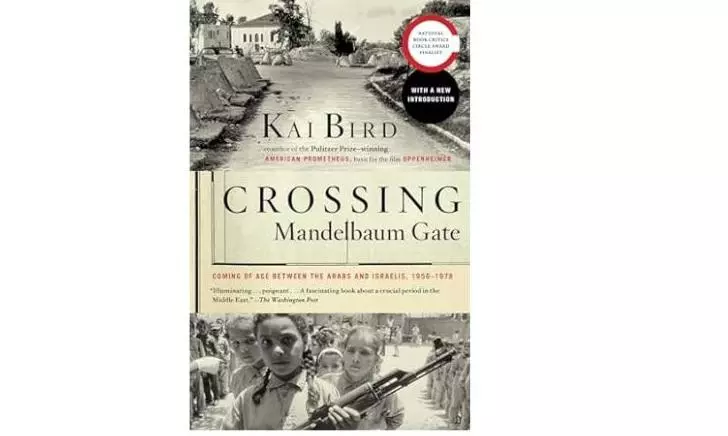Book Review | As Gaza bleeds, a memoir!

This compelling book is a composite of “memoir with a deeply historical narrative”. It presents both a fascinating personal perspective on the century-long turbulence caused in West Asia by the British agreeing in 1917 to provide a national homeland to the Jewish diaspora as also the continued right to stay of the local Arab population in what one wit described as the “twice promised” land of Palestine. This hopelessly contradictory policy was torpedoed by the Zionist slogan, “A land without people for a people without land”, effectively stripping the Arab Palestinian of his existential identity and human dignity. If the Zionists justified their ruthlessness in establishing a Jewish state by invoking the Shoah (Holocaust), the Palestinians pointed to Al-Naqba (Catastrophe) that had rendered them refugees in their ancestral lands when Israel was proclaimed on 15 May 1948.
Kai Bird’s father was a consular officer in the American Foreign Service, posted in Jerusalem. Kai himself was only four years old when he arrived in a city seared by the UN partition of Palestine, with the Mandelbaum Gate marking the dividing line between Arab-majority East Jerusalem and Jewish-settled West Jerusalem. His home was in the east and his school in the west, so crossing the divide was a daily experience. His gregarious father and sociable mother were close friends with both the Arab elite and the Jewish community. It was the start of a lifelong involvement of young Kai with both communities.
He lived in the region through the Suez crisis of 1956 precipitated by Nasser’s nationalisation of the Suez Canal which led to the Anglo-French-Israeli invasion of Egypt. The author’s insightful account of the events that forced Gamal Abdel Nasser’s hand and the brief but bloody invasion that followed is invaluable as it sketches the events encyclopedically, that is, in detail but succinctly. Bird then traces the rise of Nasser, his virtual deification in the entire Arab mind, the pan-Arab attraction and influence of Nasser’s vision and the mellifluous rhetoric with which he kept his audience spell-bound. The spell endured despite Nasser’s defeat in the 1967 six-day war. When a sudden heart attack in 1970 took him away, Kai quotes an Egyptian doctor saying, “Nasser’s greatest achievement was his funeral. The world will never again see five million people crying together”.
Kai takes us through the rise of Yasser Arafat and his fall at the hands of a fellow-Arab, King Hussein of Jordan, in the infamous Black September fratricide of September 1970, which sparked a spate of hijackings that made Leila Khalid’s name a household word.
The narrative then turns very personal with the author marrying a Jewish girl whose mother escaped the clutches of the Nazis. The point is to emphasise that he is aware of the horrors of Hitler’s holocaust but also of the horrors of Al-Naqba, the Catastrophe. He sees hope only in a Gandhian, non-violent resolution of the issue. But is this still valid in the Year of the Genocide in Gaza?
Crossing Mandelbaum Gate: Coming of Age Between the Arabs and Israelis, 1956-1978
Kai Bird
Simon & Schuster
pp. 425; Rs 1,299

